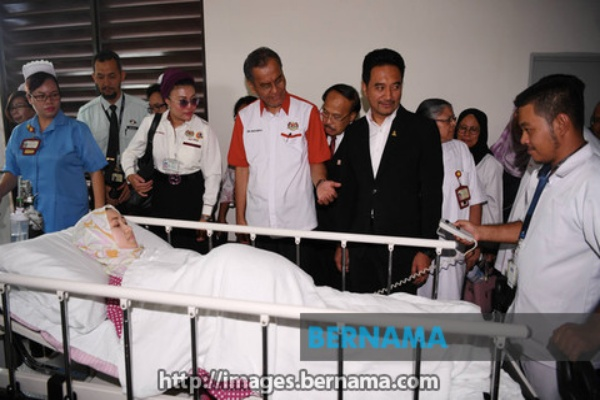Govt hospitals must boost ties with private clinics - Health Minister
KLANG, May 13 (Bernama) -- The Health Ministry is encouraging government hospitals to collaborate with private clinics as a way to help reduce congestion of patients at government facilities.
Health Minister Datuk Seri Dr Dzulkefly Ahmad said the benefits of such cooperation include simplifying patient referral cases from private clinics which indirectly could reduce waiting time at clinics in government hospitals.
Citing the example of Hospital Tengku Ampuan Rahimah (HTAR) here, Dr Dzulkefly said so far, there were eight private clinics working closely by completing cases for patients receiving treatment from them before referring to hospitals for further action.
"This is something new that has not been done elsewhere where private clinics play an important role by identifying patients first before they are referred to HTAR for further treatment. The collaboration is good and hopefully more hospitals can do the same,” he told reporters after an official visit to HTAR today.
Dr Dzulkefly said HTAR had also introduced the Multiple Disciplinary Short Stay Unit (MDSU), which is an approach to reduce overcrowding in normal wards.
He said the capabilities and experience of doctors and nurses in acute health care in serving the unit were seen to reduce the probability of patients returning to the hospital.
"In the MDSU unit itself, there are 15 beds and patients are treated in approximately 24 to 72 hours only. If given treatment at this unit, the patient will not be admitted into a normal ward. The experience of these doctors and nurses will be used to categorise the patients who can be treated there.
"I noticed that in the HTAR, they lack the resources but that has only made them innovative and they created such initiatives. I want this unit to be a benchmark and if possible, it can be used in all government hospitals, especially in the Klang Valley,” Dr Dzulkefly said.
MDSU is a new unit in HTAR established in January last year in providing treatment for patients in medium-level emergency cases, and among them are uncontrolled diabetics and those suffering from hypertension and certain types of orthopaedic problems.
Meanwhile, Dr Dzulkefly added that only 40 per cent of the HTAR’s Mother and Child Care Complex (KRIBA) was used, but the facility was expected to be fully operational in stages from next year.
He said the operational constraints were mainly due to the lack of staff, especially nurses in related fields.
"It is very regrettable that the construction of this treatment complex was not in line with the needs of the personnel. But I am told that in July, there will be 57 new posts for nurses at HTAR,” Dr Dzulkefly said.
KRIBA is an eight-storey complex that was completed in January. It started operations in March and has about 40 beds and several maternity rooms.
-- BERNAMA
HealthEdge
EXCLUSIVE

Pet Vaccination, Public Awareness And Surveillance Key Towards Rabies-free Southeast Asia - Experts
KUCHING, Dec 11 (Bernama) -- The goal of making Southeast Asia free from human rabies can be achieved through a total understanding of the disease, how it can be prevented and responsible pet ownership among communities, say experts.
read more ››IN FOCUS

TAVI KAEDAH BAIK PULIH INJAP JANTUNG TANPA PEMBEDAHAN




